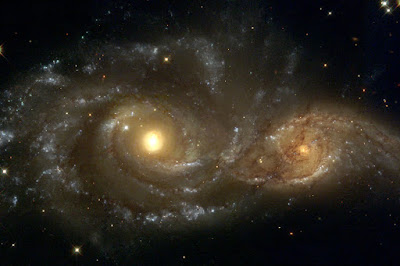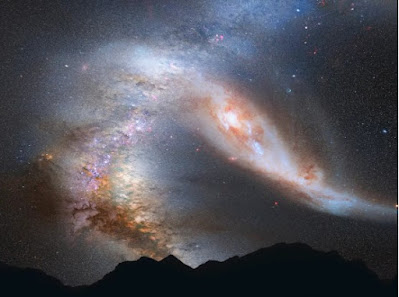The keynotes of that genus of fantasy are exoticism, the ancient world, priesthoods and demons, typically (not always) lower or less widespread use of magic yet at the same time an admixture of science, or at least scientifically-coloured fantasy. Most importantly, the universe in such science fantasy tends to be realistic, governed by laws of nature (even if they include magic) that are indifferent to humankind. It’s the opposite pole to Jewelspider, where dream logic and prophecies and a real divine presence are woven into the setting.
As a teenager I loved the fantasy worlds of Robert E Howard, Edward P Bradbury (Moorcock again), Jack Vance and Tanith Lee – so naturally when Empire of the Petal Throne appeared in the mid-‘70s I took to it like a tletlakha to water. I owe a creative debt to Professor Barker and his world of Tekumel only partially repaid with the four issues I edited of The Eye of All-Seeing Wonder.
A lot of studios, game developers and book publishers these days are eyeing the success of things like Game of Thrones, The Wheel of Time, and Dune. With networks in the streaming wars all chasing the last big thing, a fully-realized original fantasy/SF world is a lottery ticket with a big jackpot on offer. Suddenly worldbuilding is in.
A little while back I was lamenting the difficulty David Velasco and Riq Sol were having raising funds for their game Expeditionary Company. Probably the answer is to forget about launching it as a boardgame/gamebook, just take it to a developer who wants a great concept for a new MMO. Judging by the rapid rise of Vulcanverse online, if they could find a way to include NFTs in the design they'd have to chase the investors off their front lawn. Or they could see if Jeff Bezos has another half billion and doesn't want to throw it away this time. (It would need a far sexier name than "Expeditionary Company", though.)
There aren't that many fantasy world-builders with expertise in both games and storytelling, so I thought I'd try my hand at creating a "hard fantasy" setting. This was Before the Storm, a novel I was writing while doing jury service in the mid-'90s. I’ll quote from the T-shirt version:
An isolated star system out beyond the galactic rim. For a quarter of the year the night sky is utterly dark with only a few smudges of light marking distant galaxies. Then gradually the galactic rim makes its appearance at night: a vast wheel of stars, not of one galaxy but of two in spectacular collision.
The people of this world are descendants of a crashed colony ship but have no record of their heritage. As far as they know they are alone in the universe. The fauna of their world are not the familiar animals of earth. Instead of horses they ride “destriers”, two-legged animals that because of their cold blood must be warmed beside ovens before they can be used in cold weather. Technology is barely beyond the level of the late middle ages - though there are some features that have not paralleled the development pattern of Earth's history, such as primitive gunpowder weapons and even a type of photography.
Some biotechnology survives from the colony ship that brought the original settlers, often in the form of various algae. There is a hydrogen-producing strain that permit balloons for use in reconnaissance and a cobweb-silk producing strain that is used for weaving immensely strong fabrics. Various other scattered fragments of technology are sometimes found, but to the superstitious inhabitants of this world they are thought of as magic.
There are also civilized nonhumans and semi-humans sharing this world with humanity. At the point when the first novel begins they have only been infrequently contacted and are thought of as mythical.
Medra is a tropical island nation that, by virtue of the industrious and warlike nature of its people, has consolidated an overseas empire much larger than the original archipelago. Medran society is more developed than those of the countries it has conquered, but the rigid caste system that has vitalized it in the past has now reached the point of breakdown. A new society is in the process of emerging.
I never finished the thing. One reason is that I got a job at Eidos that left no time for novel-writing. But that’s really just an excuse. The truth is that it was the kind of fantasy I wanted to write but not really what anyone was reading back then. Publishers wanted the Western style of fantasy I mentioned above set in a version of the Middle Ages with more modern sensibilities -- effectively, "medieval America".
By contrast my fantasy world was not the slightest bit medieval nor culturally or ethnically European. It bucked the '90s trend, being more of a modern evolution of those weird and wonderful Planet Stories of yore, but now that the selection pressure is for exotically different fantasy worlds (there is no point in creating a world that isn't uniquely and brandably distinct) it might finally be time to dust it off -- with the necessary changes to make it compatible with current trends in massively multiplayer online play, which is where the demand is coming from. So I am currently repackaging it like this:
A Rapa Nui of the cosmos
The idea of an isolated world is a powerful one, throwing all our human endeavours against the daunting backdrop of uncaring immensity. Here’s a way to do that:
This world orbits the star Edis , a solitary system out in intergalactic space. For several months of the year the night sky is empty of stars. Then only the other planets of the system and the moons of our world are to be seen.
As the season of stars approaches, the rim of a galaxy rises above the horizon – higher month by month until mid-summer, when most of the night sky is taken up by the spectacular sight of two galaxies in collision, intertwining vortices of light formed by great reefs of stars being torn into new configurations.
How do people come to be here? For most, it is a mystery no one even considers. This is where humanity has always been, surely? There are cities, farms, villages. Kings and councils of syndics, priests of the gods who explain portents – and deep forests in which dwell alien creatures that never arose on any world of men.
The truth: a one-in-a-trillion quantum fluctuation in the warp drive of a generation starship, so that instead of its intended destination in the Milky Way the ship was flung across gulfs measureless to the imagination. That it arrived anywhere in real space is a miracle. A return journey would have been impossible to plot or undertake even if the ship had not taken damage.
The crew made their decision. With no future possibility of contact with the rest of human space, no hope of ever returning to space, it would be kindest to raise the new generations with no knowledge of humanity’s past. This world Edis IV, known to the settlers as Anshar , would be the new Eden.
That was hundreds of years in the past. To most people, Anshar is the only world there is.
My initial plan for how to develop it was using The Expanse's serialized book model, though more like a TV writers’ room – ie five or six writers each taking main responsibility for a couple of “episodes” (around 20,000 words each) building over 6-10 months into a 12-episode “season arc” thrashed out from the start by the lead writer(s). Those novellas would be the proof of concept stage, and viable as products in their own right, but if funding could be found they should be repurposed into scripts and released as audio dramas. The plan, then, was to prototype in prose and see if that could lead on to videogames, TV shows, or whatever.
The snag is that really you need artists involved from the start. Words can only take you so far but people want a shared experience -- visuals showing the architecture and clothing and also sounds, the noise of wildlife, the rhythms of music in this fantasy culture.
Whether I’ll get to do more with Edis than I did with that Medra novel thirty years ago remains to be seen. The sword of Damocles over every writer’s head is that all creative work is entirely speculative. The seed capital is the writer’s own time and effort, but when it comes to selling it nobody respects sweat equity the way they respect cash. So taking six or nine months out to devise a complete fantasy world and write a novel set in it is like buying a lottery ticket in the knowledge that, if it looks like winning, some producers or publishers will do their best to claim the lion’s share of the payout.
In any case, after my day jobs (freelance design on a videogame and writing the final Vulcanverse book) my first priority is Jewelspider. I was chivvied about that by some gaming buddies I met up with recently. Oliver Johnson was running a new Legend adventure and resorted to using original Dragon Warriors rules because 'Dave still hasn’t written the Jewelspider magic system!' So I have to do that – and then Abraxas, which will be serialized first to Patreon backers and is a science fantasy setting (prehistoric rather than far-future) that will use a new edition of my Tirikelu rules. And after that, maybe, I’ll take another look at this thing.
* * *
This post originally appeared in longer form on my Patreon page, and included a link to the first 20,000 words of the Medra novel. I mention that not to try to get you to sign up to Patreon (though you would be very welcome) but just for full disclosure.
And here's a reading list to go with:











